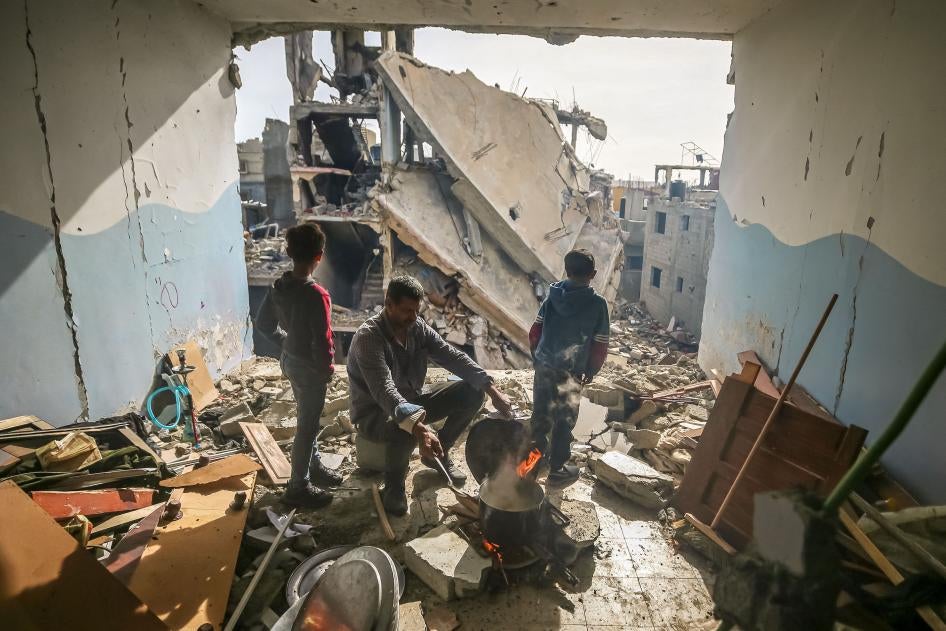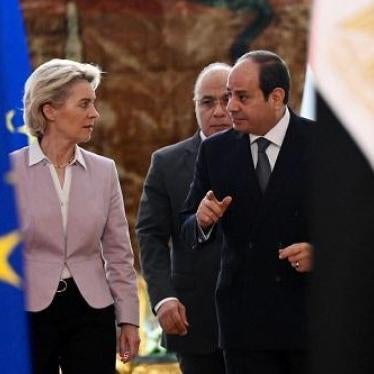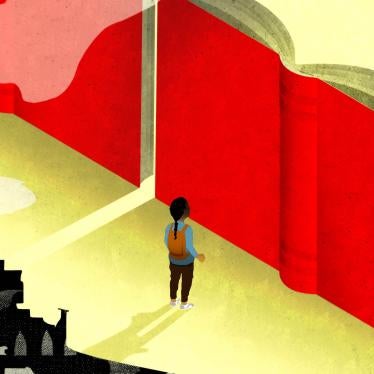In the 1990s, extremists aiming to change Bosnia and Herzegovina’s demographic map through “ethnic cleansing” terrorized civilians into leaving their homes. Horrified at witnessing violent forced displacement in real time and wanting to stop it, the then-UN High Commissioner for Refugees Sadako Ogata extolled a new principle she called "preventive protection" and used the term “right to remain.”
But the UN refugee agency and other humanitarian actors could not stop the ethnic cleansing. To make matters worse, European states seized on the “right to remain” as a rationale to block asylum seekers from fleeing Bosnia. The UN Security Council declared the creation of “safe areas” to contain and protect the displaced people within Bosnia. We know how that story ended: The mass graves of men massacred at Srebrenica, one of those so-called safe areas, stand as testament to the international community’s failure to protect civilians.
Now, 30 years later, 2.3 million Palestinians are trapped in Gaza, but unlike Bosnia, there is no place within that small, densely populated territory that even purports to be safe. Following the Hamas-led attacks in southern Israel on Oct. 7, 2023, Israeli forces have laid waste to vast areas, reducing much of the housing to rubble, with more than 31,000 people estimated killed, according to Gaza’s Health Ministry, the majority women and children.
Most of Gaza’s population has been displaced, many ordered to evacuate one area only to be bombed, starved and forced to flee again—and again. More than 1 million people who have fled to Rafah on Gaza’s far southern border with Egypt live in fear as an Israeli military ground operation on Rafah and another mass evacuation looms.
Like Ogata 30 years ago, my organization, Human Rights Watch, along with countless others, has been trying to mobilize international action to stop further mass atrocities. We have been calling for Israel to respect the right of Palestinians to return to the areas they have been displaced from in Gaza, but also for the right of Palestinian refugees to return to what is now Israel. More than 80 percent of Gaza’s population are refugees, people who were expelled or fled in 1948 from what is now Israel and their descendants, in what Palestinians call the Nakba, the catastrophe.
Every person has the right to return to their country, a right enshrined in numerous human rights conventions, and affirmed for Palestinian refugees in UN General Assembly resolutions dating back to 1948. But Israeli authorities have consistently denied this right and blocked Palestinian refugees from returning. Since Oct. 7, Israeli authorities have continued to block Palestinians in Gaza from fleeing into neighboring Israel to seek even temporary refuge from the hostilities, in violation of international law.
Neighboring Egypt’s borders are mostly closed, too. Only a relatively few Gaza residents have been allowed to enter Egypt through the Rafah crossing, including foreign passport holders, the wounded and their companions, and some who have paid exorbitant sums to flee via Egypt. Not wanting a wave of refugees flooding into his country, especially given the prospect that the Israeli authorities might bar them from returning, Egyptian President Abdel Fattah el-Sisi declared Egypt’s “vehement rejection of the forced displacement of the Palestinians and their transfer to Egyptian lands in Sinai.”
But what about Palestinians in Gaza who feel their only chance to survive is to leave Gaza? How much longer can Israel and Egypt block desperate people from fleeing?
Palestinians in Gaza should be allowed to remain in dignity in their homes and to exercise the right to return, but they also have other treaty rights that must be respected by all states: the right to leave a country, the right to seek asylum, and the right of nonrefoulement, that is, not to be pushed back or returned to face persecution or other serious threats.
Through intermittent telephone connections, Human Rights Watch researchers have been talking with Gaza residents as they flee from one grim place to another. A 34-year-old man from Gaza City, married with two children, has been telling us of his ordeal. “What the kids witnessed in the last area, they are in shock, they are terrified. They jump at small sounds now. It was so hard for me to get my family from the last place to here. Most of the areas were closed off by the Israeli army.”
His family lacks clothing and medicine. Humanitarian aid, so far, has consisted of two bags of flour. They have been sleeping on the ground in a tent in Rafah with 10 others, using a shared outdoor toilet serving about 70-80 people. “We are living an animal life,” he said.
The question for this man now is survival, and he said the only thing he wants is to take his family and leave Gaza. “Gaza is now a graveyard for all its citizens,” he said: “If given a way or a chance I will take my family and my mother and sisters and I will leave without thinking twice. I don’t want to stay here and turn into an animal and fight with others to get water and food.”
Palestinians, like everyone everywhere, have the right to live in dignity in their homes. They also have the right to leave for their own security and to return in safety and dignity. Stopping forced displacement and other atrocity crimes from occurring is the top priority at this moment. But when all other human rights are denied, the right to flee is the last remaining option. That option cannot be closed.










